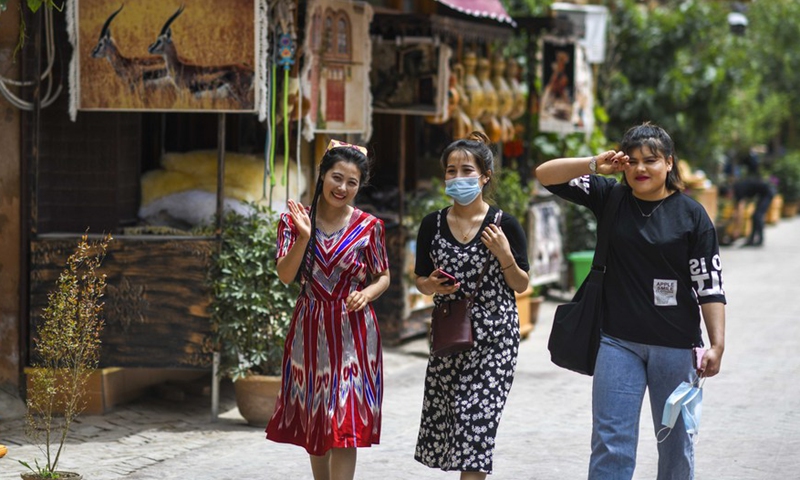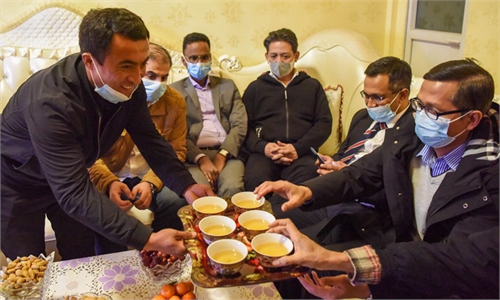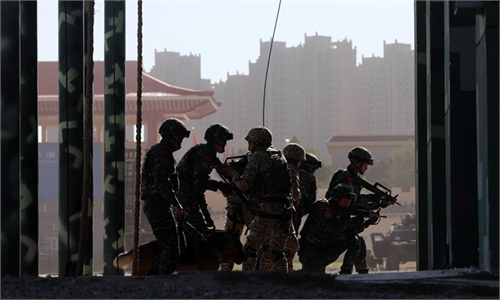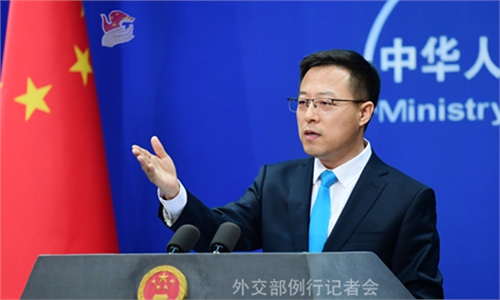Le Monde owes an apology for accusing Chinese state media of creating a fake French journalist to speak the truth about Xinjiang: scholar

Local residents walk in a street at a scenic spot in the ancient city of Kashgar, Northwest China's Xinjiang Uygur Autonomous Region, May 16, 2020. Photo:Xinhua
"You should apologize!" A veteran Chinese expert on French studies delivered this message to Le Monde, a major publication in France, for claiming that a French journalist who spoke out the truth about Xinjiang does not exist. The accusation came only because she told a story about China that goes against the mainstream anti-China public opinion in France.
This accusation also vividly shows that French news outlets have been ignoring whether the truth has been correctly presented. Instead, they have been playing hard in echoing the alleged political correctness, which is misrepresenting everything related to China and turning it into a negative issue and any praise to Beijing would be labeled as fabricated or faked by the Chinese government. The recent online accusation against a China Global Television Network (CGTN) journalist, Laurène Beaumond, is one example, Zheng Ruolin, a senior Chinese media professional and European studies expert who lived in France for several years, told the Global Times on Wednesday.
It all started when Le Monde recently published an article entitled "Controversies concerning a Chinese state television's propaganda about Uyghur people" indicating that Beaumond, who works as independent French journalist for CGTN, is actually a fabricated person, invented by the Chinese state media, as she was unknown in France and there's no information about her identity or registration as a French journalist.
The reason why the French media is claiming this journalist does not exist is simply because she is telling the truth, Zheng noted. "I have a friend who knows her well. She married a local in Urumqi in 2014 and she is very familiar with the region. She is very brave to send her stories to the Chinese state media and she is responsible for all the content published," he said, noting that Beaumond is a very brave journalist who tells the truth.
Actually, Laurène Beaumond is a pseudonym because she has been under great pressure about losing potential job opportunities. Outspoken people in France who speak in favor of China are either attacked or criticized by the mainstream public opinion, and those objective voices about China have been disappearing, the Chinese expert said.
The French journalist recently published an article on March 28 on the website of the CGTN entitled "My Xinjiang, stop the tyranny of the fake news," refuting a series of terms including alleged "concentration camps" "genocide" and "forced labor", which are based on questionable proofs or invalid testimonies from people who have never been to this region. She also told her experiences in Xinjiang including visits to Kashi, Aksu and Kanas scenic area.
Unsurprisingly, the way this French journalist tried to change some western scholars and mainstream media narratives on Xinjiang was attacked by rumormongering Adrian Zenz on Twitter, saying that "'French journalist' Laurène Beaumond lives in Urumqi and writes firsthand accounts for CGTN, refuting western atrocity allegations. Now, the French paper Le Monde reveals: this 'journalist' does not actually exist." And another anti-China scholar, Antoine Bondaz, who had a verbal confrontation with the Chinese Embassy in France, also said that "If this fake journalist Laurène Beaumond wants to interview me, welcome."
"Clearly, Le Monde has lied, Bondaz has lied, and this French newspaper owes the CGTN a sincere apology," Zheng said.




